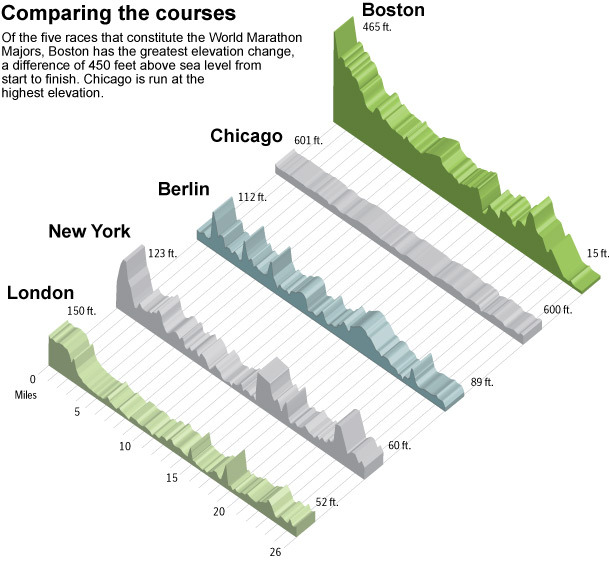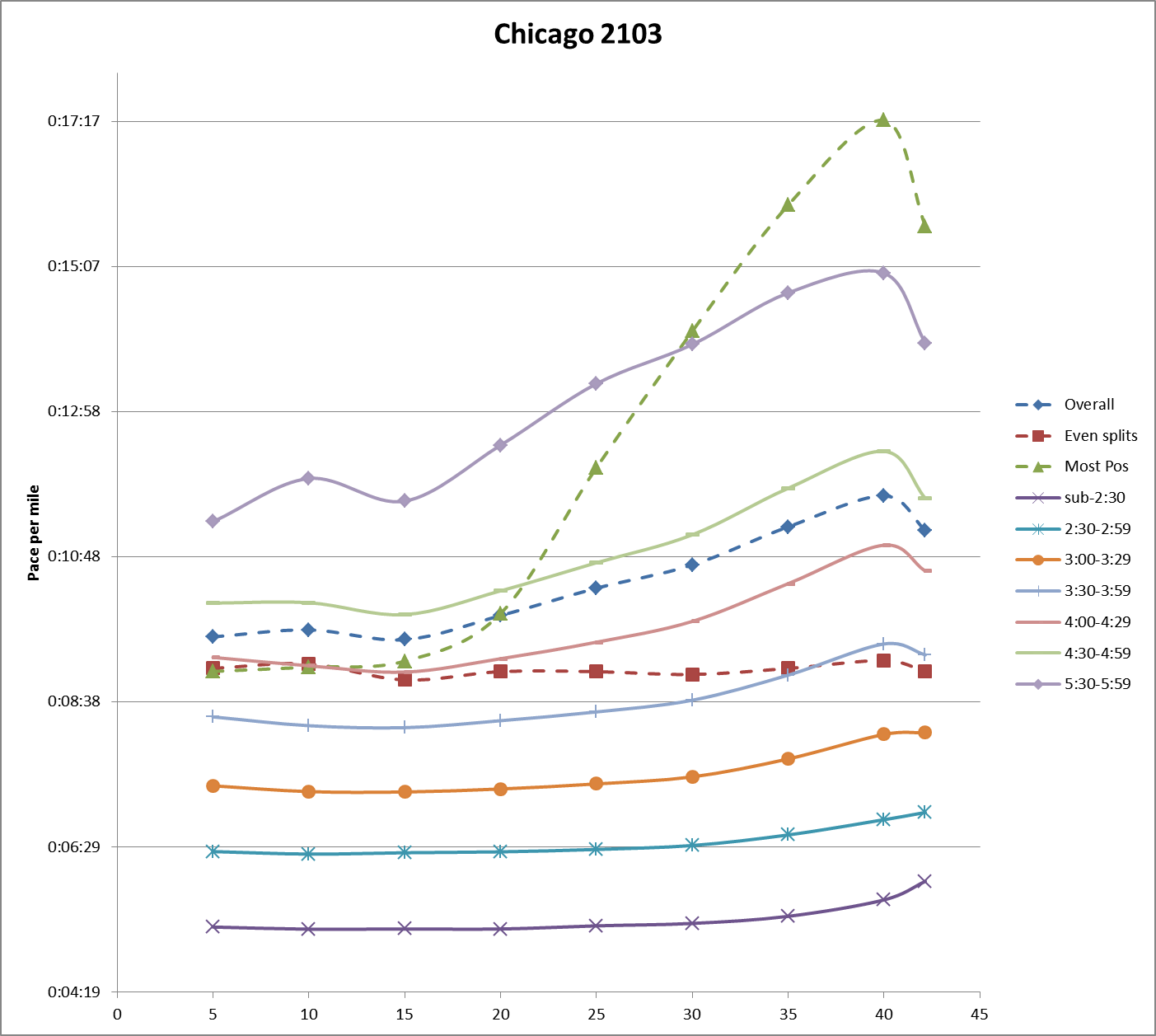(This is the 13th post in a series that started here)
After my last post in this series, I obtained the 5K splits for the 2013 Chicago Marathon. Chicago is a notoriously flat course, as shown in this Boston.com graphic:
I wanted to see if the trends in runners’ paces over the last 2K on the flatter course were consistent with what we saw at Boston and New York.
Here’s the 5K pace chart for Chicago:
Once again, the faster runners were relatively slow over the last 2K, while slower runners picked up their pace.
The new chart reveals another pattern: as the courses get easier, more groups run faster over the final 2K. At Boston, the first group to pick up the pace at the end were the 4:00-4:29 runners. At Chicago, the 3:00-3:29 group managed the feat. And at New York, which most people think falls somewhere in between Boston and Chicago in difficulty, the 3:30-3:59 group was the first to speed up at the end.
I look at the difference between 5K splits for men and women in my next post.



Pingback: 5K Split Distribution at the 2014 Boston Marathon | Y42K?
Why is New York between Boston and Chicago?
I thought Chicago was the easiest course and Boston the second easiest.
Most people I talk to say Boston is harder than NY. I’ve only run Boston.
More data is needed. Problem is, only a few big city marathons post 5K splits and getting the data from races that do have the splits can be difficult..
This site does not agree…
http://www.findmymarathon.com/race-detail.php?zname=New%20York%20City%20Marathon
“Finish Time Equivalent
If you ran the New York City Marathon in 4:53:00, the equivalent finish time for the Boston Marathon would be 4:46:25. ”
But I don’t know if they have actual data.
I’ve asked how they got those results. I strongly suspect that they don’t adjust for strength of field. Boston has a better average finish time, but that’s because most of the runners are qualifiers, not because the course is easier.
There’s a FAQ that doesn’t clarify things enough. They calculate their scores based on an average time of 4:30 and the Boston field is significantly faster, so their process may break down.
I got a non-answer answer from FindMyMarathon.